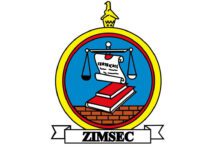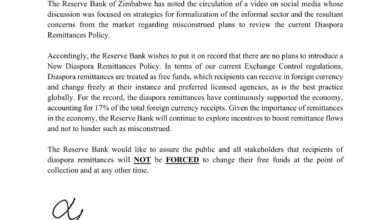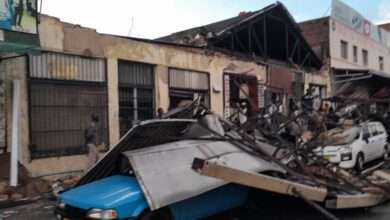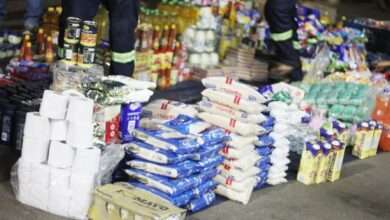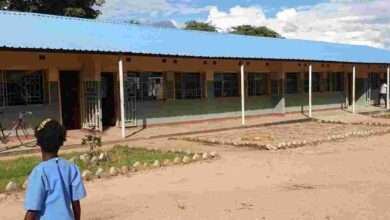
A LONG winding queue snakes to the pavement from a photocopying shop in the Bulawayo city centre and each customer patiently waits his or her turn to be served through a window.
Behind the window is a middle-aged man who single-handedly takes the orders, receives payments and gives the customers the books they have paid for. From the look of things, the man is running a profitable business judging by the number of customers waiting to be served but unfortunately the operation is illegal.
The man is photocopying books, mostly school text books to walk-in customers and his books are also sold on the streets of Bulawayo. In some cases the vendors sell the books in front of bookshops.
The man declined to be interviewed and demanded that the pictures taken by the photographer Nkosizile Ndlovu be deleted. He threatened to report the news crew to the police for taking his pictures and that of his customers despite the fact that his operation is illegal.
The reproduction of texts books or any reading material without the consent of the authors or publishers is illegal under the country’s laws but book piracy is a thriving industry in Zimbabwe. Book piracy involves the replication of copyrighted literature through scanning, photocopying, printing and electronic duplication of books, which is now common in major cities.
The illegal reproduction and photocopying of books, which are then sold on the streets, has given livelihoods to many but is leaving authors and publishers wallowing in poverty. Publishers are feeling the pinch as book piracy continues to threaten the industry.
“Book piracy is killing our industry. Publishing is a business that requires a lot of capital as we have to buy expensive machinery most of which is imported, pay workers’ salaries, rentals and many other related expenses of running a business.”
He said there is an urgent need for stakeholders and the police to come up with measures to stop the book piracy to save the industry.
“The country is losing a lot of revenue and there are fears it could become the biggest importer of books if many publishers are forced to close shop.”
One parent, Constance Mlilo, said she has no choice but to buy illegally reproduced books which are cheaper compared to the prices in bookshops. She said:
“The books are cheaper and readily available. Sometimes as parents we look for our children’s textbooks for days on end at these established bookshops to no avail and we end up buying these photocopied books.”
A school teacher who declined to be named, said schools are the biggest culprits that are fueling the illegal reproduction of books.
“Most schools, colleges and universities have since acquired heavy duty photocopying machines to reproduce books. Teachers cannot stop learners from bringing illegally reproduced textbooks into class.”
A tour of Bulawayo’s city centre streets showed that book piracy is a thriving business. The books on the streets are selling for a song compared to the bookshop prices hence many parents are buying from the streets.
Zimbabwe Book Sellers Association chairman Paul Masuku said book piracy is getting out of hand. Masuku said:
“You will find that, for instance, a bookshop is selling a Grade Three Mathematics textbook for US$9 but that same book will be on the streets selling for as low as US$3. Book piracy is killing the livelihoods of book shop owners and publishers.”
Mr Masuku said what is disturbing is that even school authorities are encouraging parents to buy the low quality text books from the streets.
“We are aware of teachers who are advising parents to buy books from photocopying shops saying they are cheaper.”










